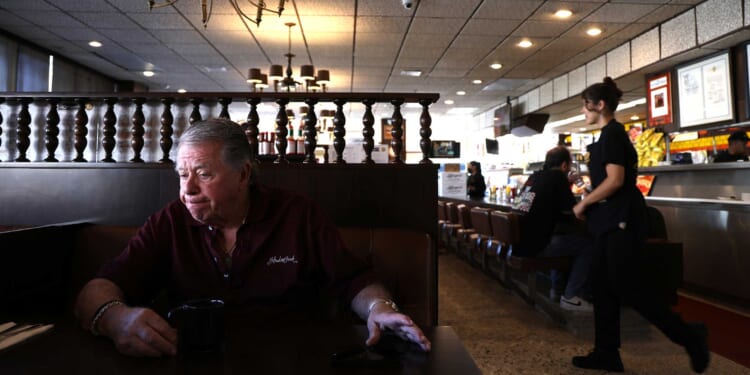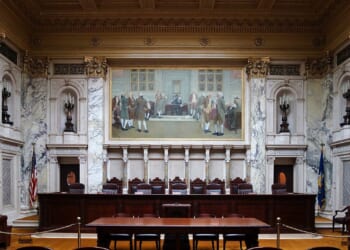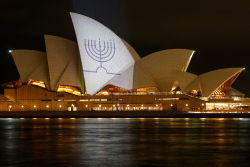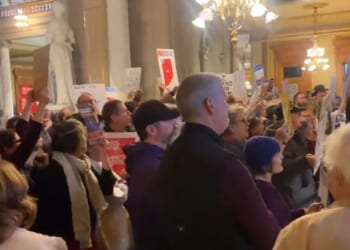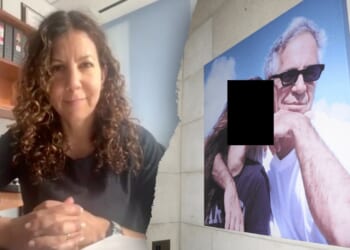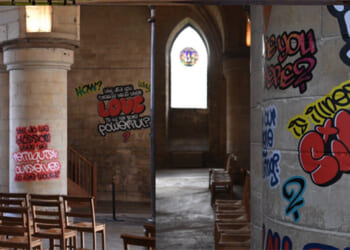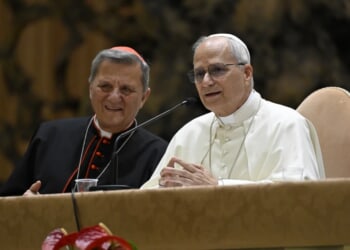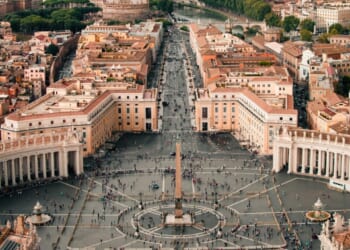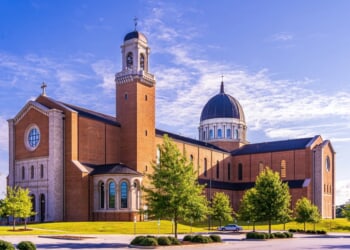MacArthur Park and Langer’s Deli are two Los Angeles institutions with closely entwined fates. Langer’s, known for its #19 hot pastrami sandwich, opened in 1947. Current owner-operator Norm Langer is the son of founders Al and Jean.
MacArthur Park—known as Westlake when it opened in the 1880s—was renamed for the famous general in 1942. A few decades later, the park began a descent into disorder, crime, drugs, and homelessness from which it has never fully emerged.
Langer’s sits across from MacArthur Park’s southeast corner. In August 2024, Norm Langer, now 80, told the Los Angeles Times that current park conditions have made him consider shutting down for good.
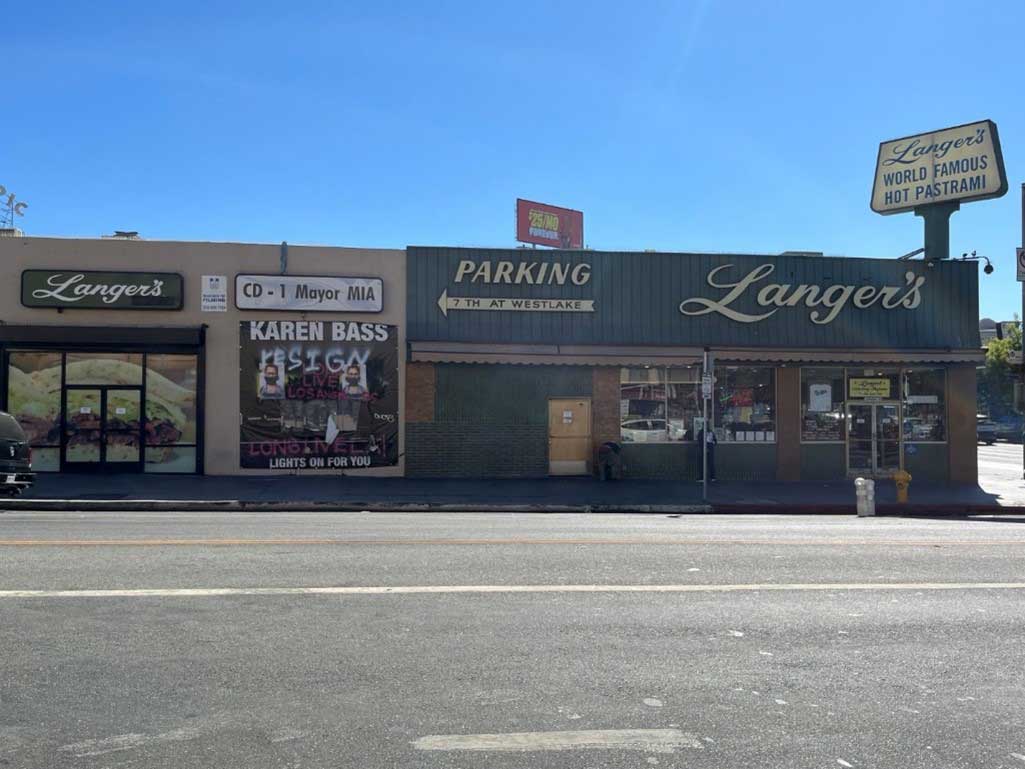
Nationwide, a shift is underway on homelessness. President Trump issued an executive order in late July on “Ending Crime and Disorder on America’s Streets.” L.A., the capital of street homelessness in America, has notched declines two years in a row. Fatal overdoses are down in L.A. and across the nation. The migrant crisis, which pushed homelessness to a historic peak last year, has eased. Fewer tents line San Francisco’s streets.
But MacArthur Park still looks like a zombie apocalypse. Visitors on an ordinary weekday afternoon will witness dozens of people in and around the park openly using and selling drugs—and hard drugs at that. While marijuana clouds are scarce, the “fentanyl fold” is everywhere. The day after my recent visit, someone was fatally shot near the park. A week earlier, a dead body was fished out of its manmade lake.
In 1980, the Los Angeles Times reported that “Winos, Dopers, Crime” had “Overrun” MacArthur Park. But some hope returned in the intervening years, as Langer remembers. “[William J.] Bratton was excellent,” he told me, referring to the famed lawman who served as L.A.’s police chief during the 2000s. Back then, “the park was in fairly good shape.” Bratton more than halved violent crime in the neighborhood and locals began worrying not about disorder but gentrification.
Over time, however, MacArthur Park regressed. “It’s a turnstile—you take it down today, it’s back tomorrow,” Langer said. “Why? It comes back to law enforcement.”
The Trump administration delivered a short burst of enforcement on July 7, when armed service members and immigration personnel raided MacArthur Park. City leadership denounced the incursion, but they’ve shown no indication that they’re up to the task of restoring order. A member of Democratic Socialists of America, Eunisses Hernandez, represents MacArthur Park on L.A.’s city council. She believes that the solution to the park’s problems lies in “life-affirming responses and services.”
For Mayor Karen Bass, the issue is not ideology but misgovernance, as demonstrated by her shaky response to L.A.’s wildfires earlier this year. Bass ran in 2022 on a pledge to boost the LAPD sworn officer count up to about 9,700. Instead, the number of cops dropped after she took office and now stands at about 8,700. Langer reckons that a force of 10,000 to 12,000 would be more appropriate. (In Bratton’s day, the LAPD had some 10,200 officers.)
The late Fred Siegel often explained the demented urbanism that prevailed throughout New York’s bad old days by recounting the fate of “Jack’s Pastrami King,” a cherished Williamsburg eatery destroyed in the 1977 blackout riots. The threat to Langer’s has been less abrupt but more representative of how bad policy harms small businesses.
Langer rejects the terms “homelessness” or “unhoused” as “catch-all terms” that fail to reflect MacArthur Park’s underlying problems of mental illness, drug dealing, gangs, and street vending. When I first visited MacArthur Park in September 2021, it was host to dozens of tents. City government cleared that encampment, but in typical fashion, the fix proved only temporary, as drug activity once restricted to tents now spilled out into the open.
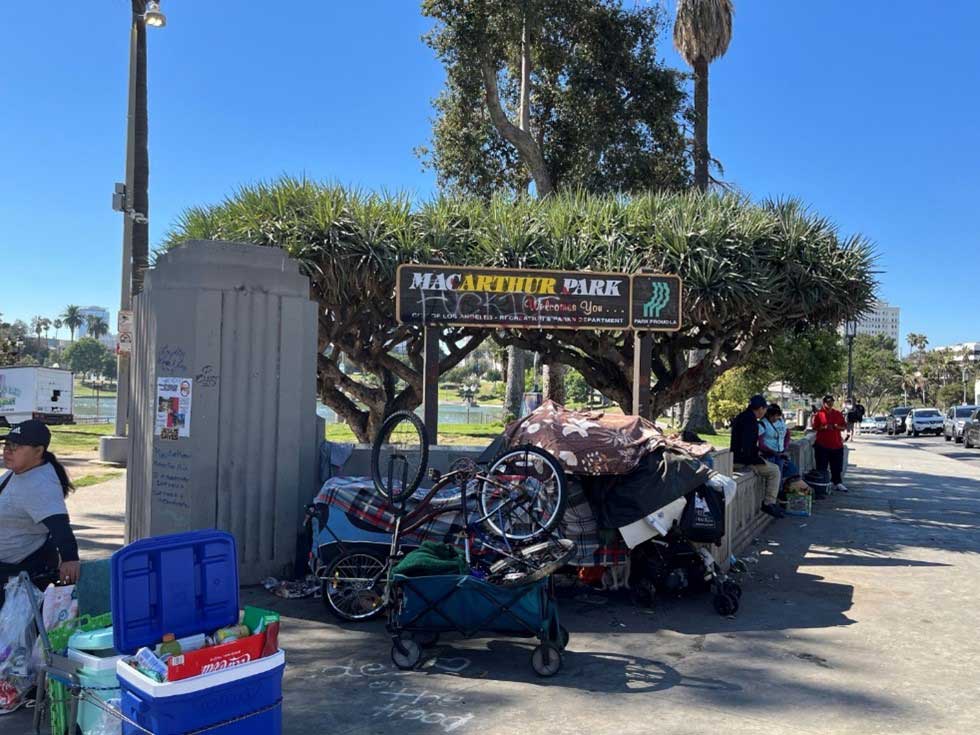
A #19 pastrami sandwich costs $27, up from $15.20 in 2012. Its value has been hotly debated by tourists on Yelp and Trip Advisor. But consensus reigns about the deli’s hellscape surroundings: “Bring a bottle [of] pepper spray and really pay attention to your surroundings. Don’t go to the park”; “Great pastrami sandwich. Russian dressing was excellent. . . . Cool atmosphere inside. Neighborhood around was overrun with homeless.”
Langer wants to stay on at least through the World Cup (2026), Super Bowl (2027), and Olympics (2028), but he concedes that “it’s iffy whether I will be able to hold out.” If Langer’s closes, no other tourist spot will locate in this area. That would be bad news for locals. Tourism means outside investment for the region’s Latino immigrant community and the deli’s 40 unionized employees.
In some ways, protecting small businesses is more about preserving quality of life and middle-class values than economic policy. Confronting a problem like MacArthur Park requires a measure of zero-sum thinking. Some people can still thrive amid open-air drug markets and other crime zones; others will flourish only in orderly conditions. We’ll know soon enough whose side Los Angeles’s leadership is on.
Top Photo: Genaro Molina/Los Angeles Times via Getty Images
City Journal is a publication of the Manhattan Institute for Policy Research (MI), a leading free-market think tank. Are you interested in supporting the magazine? As a 501(c)(3) nonprofit, donations in support of MI and City Journal are fully tax-deductible as provided by law (EIN #13-2912529).

